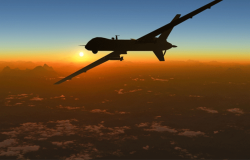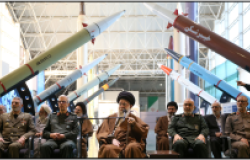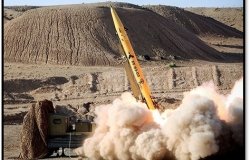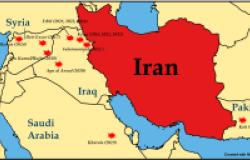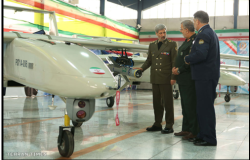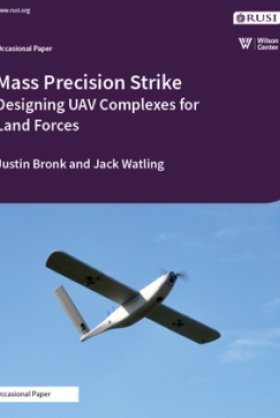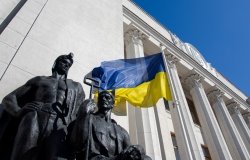Endgames with Iran
"If the World League volleyball match was any indicator, dealing with the United States is still a vexed issue for many Iranians. At the start of both games, a giant American flag was carried onto the court by four young Iranian boys as the American national anthem played. Iranian television, which broadcast the game live, showed the flag but opted to mute the anthem," writes Robin Wright.
Iran and the United States did battle this weekend, as twelve thousand spectators packed Tehran’s Azadi Stadium, on Friday and again on Sunday, to watch the two nations face off in World League volleyball. Iranians are avid sports fans, especially when the United States is involved. The Americans are the defending world champions. “The U.S.A. is currently the best team in the world,” the Iranian coach, Slobodan Kovač, told a news conference before the game on Friday. “Those who think we can defeat the U.S.A. do not have a good understanding of volleyball.”
But the Islamic Republic creamed the Great Satan, 3-0, in both matches. “They outplayed us in every facet of the game: block, defense, passing, serving, and offense,” the U.S. coach, John Speraw, said afterward. “So there is only one thing we can do, and that is to learn from this volleyball match to hope that we can improve.“ Tehran erupted in street celebrations on Sunday night.
The matches were played as Iran and the United States enter the final stages of a nuclear deal after twenty months of talks. The deadline for an agreement is June 30th, plus or minus a few days. American and Iranian diplomats began meeting last week in Vienna. Secretary of State John Kerry, who was seriously injured in a biking accident after the last round of talks, is expected to return to the negotiations later this week and stay until they end. Five other major powers—Britain, China, France, Germany, and Russia—will join in the final deliberations.
Mohammad Nahavandian, chief of staff for the Iranian President Hassan Rouhani, was among the senior Iranian officials who attended the second volleyball match. He knows Washington well. He earned his doctorate at George Washington University, a few blocks from the White House, and at one point had a green card. He told me when I called on him at Tehran’s Executive Office Building recently that he was “realistically optimistic” about a nuclear deal. “The odds are for success,” he said. “However, to be realistic, one should not ignore the fact that there are forces on both sides who either do not want this negotiation to succeed or are very pessimistic about the outcome, because of the mistrust which has been built through these difficult decades.”
On the day of the volleyball final, Iran’s parliament approved preliminary draft legislation restricting the outside world’s ability to inspect Iranian facilities. It limited inspections to “conventional” sites and stipulated that “access to all military, security, and sensitive non-nuclear sites, as well as scientists, is prohibited.” The terms could scuttle a deal. Transparency—the ability to verify that Iran will honor international limits on its program—is the whole point of the negotiations.
The legislation’s tough language is very much about sovereignty—and suspicion. “Our nuke facilities were inspected by the International Atomic Energy Agency, but some information was given to others,” Alaeddin Boroujerdi, the bill’s sponsor and chairman of the Committee on Foreign Policy and National Security, told me, as the bill was being prepared. “We lost some of our scientists—assassinated by Mossad. If they ask for interviews with scientists, would it guarantee that they would not be assassinated? Trust is a two-way street. Mistrust is a two-way street, too. If they don’t trust us, we don’t trust them.”
Tehran has already acknowledged, however, that it will have to sign the so-called “additional protocol,” which gives “further inspection authority” to the U.N. nuclear watchdog agency “to provide assurance about both declared and possible undeclared activities and to get a more complete picture of a state’s overall nuclear program.” In these final days of negotiating a deal, the challenge for the Americans and the Iranians will be defining precisely the difference between “complete” and “everything.”
The deal—a twenty-page draft and five annexes, expected to total about seventy pages—has taken so long because every word is being parsed, a senior Administration official in Washington told me, noting, “Words are staggeringly important. It’s all about words.”
The Iranian Foreign Minister Mohammad Javad Zarif, now the lead Iranian negotiator, described the often tortuous talks as an “unholy exercise.” If the diplomacy fails, he told me, “It won’t be the end of the world. The U.S. will have lost a major opportunity, probably unique. But, for us, our population is accustomed to making necessary sacrifices to preserve its dignity and its rights.” He went on, “It’s not about nationalism or chauvinism. It’s simply about having historical depth. Several years are a brief period in the history of a country with millennia as its depth.”
In a hopeful sign, the proposed Iranian legislation stripped out the tougher amendments and, in the end, limited its own power to kill a deal. It mirrored congressional action last month in the United States, when Republicans and Democrats backed off some of their most demanding amendments. “We want to help the country and not create new problems,” Ali Larijani, the speaker of parliament, said. The legislators ultimately opted to defer a final decision on the nuclear deal to the Supreme National Security Council. It is led by President Rouhani, a former nuclear negotiator who won the presidency, in 2013, by vowing to end a decade of tensions—and international sanctions—over Iran’s nuclear program. The other members are appointed by Supreme Leader Ali Khamenei, effectively giving him the final word.
If the World League volleyball match was any indicator, dealing with the United States is still a vexed issue for many Iranians. At the start of both games, a giant American flag was carried onto the court by four young Iranian boys as the American national anthem played. Iranian television, which broadcast the game live, showed the flag but opted to mute the anthem.
The opinions expressed here are solely those of the author.
This article was originally published on The New Yorker.
About the Author

Robin Wright
Author and columnist for The New Yorker

Middle East Program
The Wilson Center’s Middle East Program serves as a crucial resource for the policymaking community and beyond, providing analyses and research that helps inform US foreign policymaking, stimulates public debate, and expands knowledge about issues in the wider Middle East and North Africa (MENA) region. Read more
